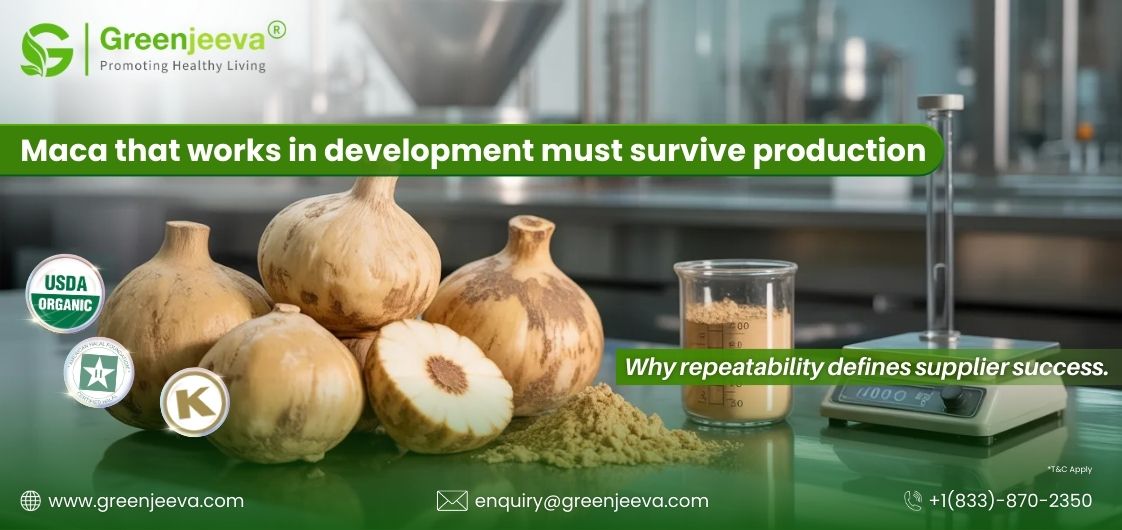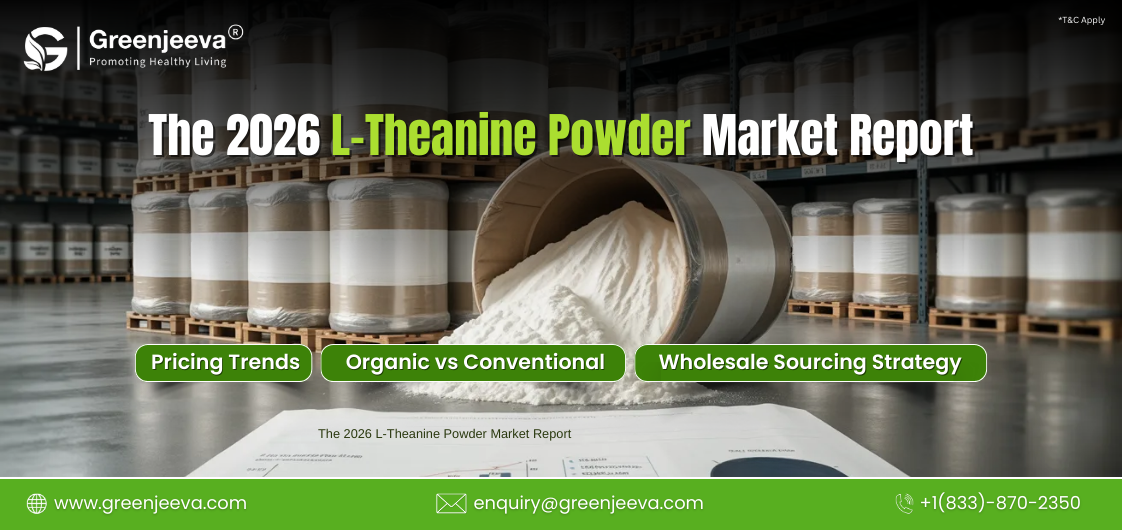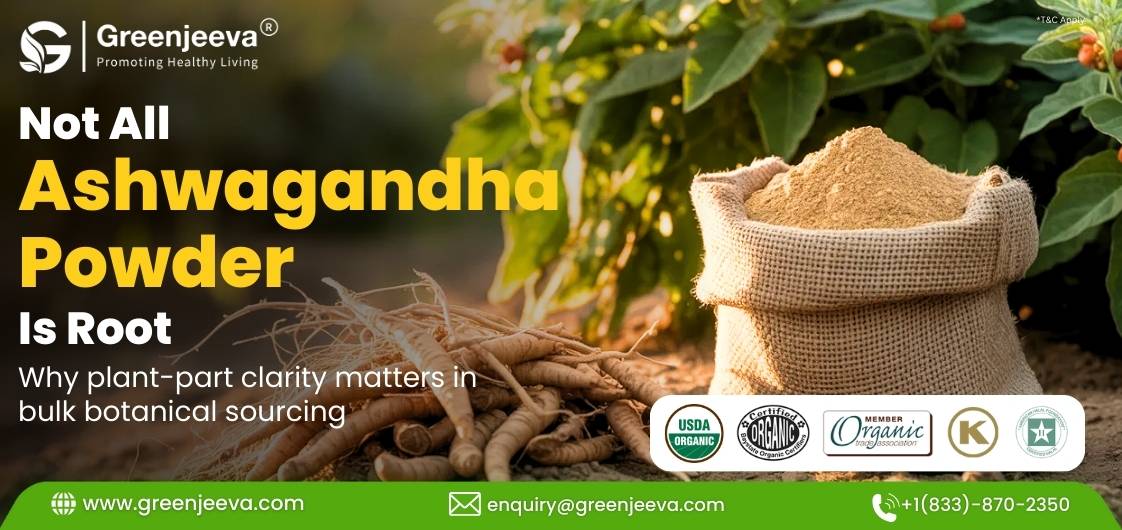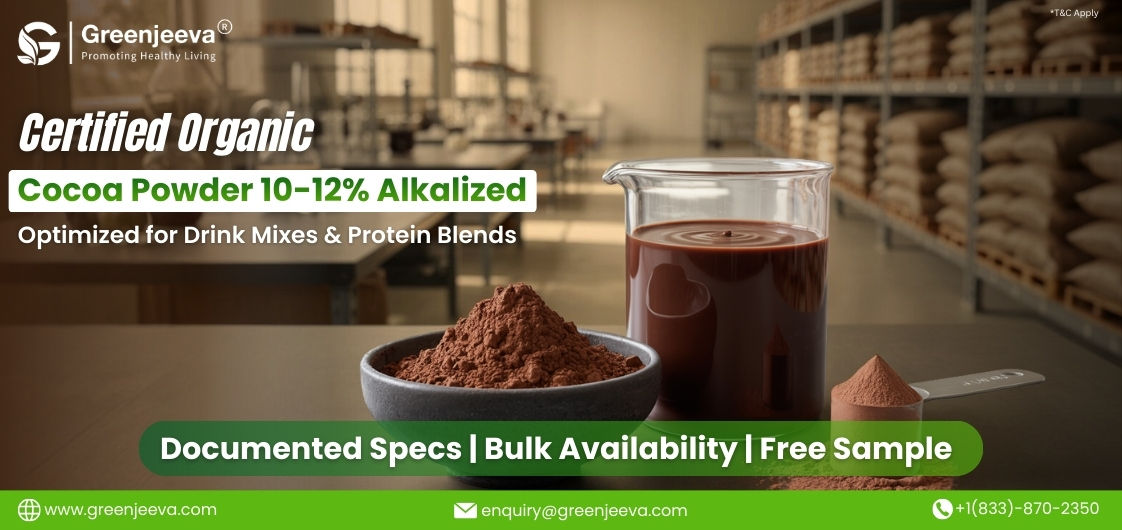Top 5 Things Procurement Heads Look for in Organic Bacopa Leaf Powder Bulk
.jpeg)
Price per kilo is just the tip of the iceberg.
Procurement professionals in the nutraceutical space know this better than anyone. With the rise of functional botanicals like Organic Bacopa Leaf Powder, purchasing has evolved from mere vendor management to full-spectrum risk and compliance strategy.Bacopa, a traditional adaptogen, has entered the modern spotlight powering formulations from capsules and nootropics to powdered beverages and teas. But while R&D drives interest, it’s the procurement head who ensures scalability, standardization, and supply assurance.In a post-pandemic world where traceability, inventory volatility, and third-party testing are under scrutiny, sourcing Organic Bacopa in bulk isn't just a sourcing task it's a competitive advantage when done right.
Is the Bacopa Powder Certified Organic and Fully Traceable?
In the world of B2B procurement, certified organic is not a trend it’s a baseline. Procurement heads increasingly ask: Is this claim verifiable beyond a single PDF certificate?
A quality supplier should provide:
- USDA Organic or equivalent certifications (e.g., India Organic, EU Organic)
- Farm origin documentation
- Harvesting and processing practices
- Full traceability logs from raw material to finished batch
Why does this matter? Because clean-label claims on your final product hinge on backward documentation. If a regulatory authority or client requests origin data or residue testing from a specific batch, your supplier must deliver.
Procurement check:
- Ask for a sample Certificate of Analysis (COA)
- Request information on processing aids or solvents used
- Confirm traceability to the cultivation region and season
A credible partner treats traceability as a system not a manual process and that gives your supply chain both compliance strength and consumer-facing confidence.
Can the Supplier Support Bulk Inventory, Forecasting & Lead Times?
Ingredient quality is crucial but so is availability when it matters. Bacopa is seasonally harvested in regions like India, and poor planning can leave you scrambling during peak demand
Procurement heads must evaluate:
- Minimum Order Quantities (MOQs) that suit both trial runs and scale-ups
- Rolling inventory stock with safety buffer options
- Lead time transparency (especially for custom mesh or extract orders)
Is the Ingredient Standardized and Third-Party Tested?
Standardization isn’t just a formulator’s concern it’s also a procurement imperative. Whether you’re sourcing raw Bacopa powder or an extract, knowing what you’re getting batch after batch is essential.
Key parameters to review:
- Bacopaside content: Look for standardized levels (e.g., 10–20%)
- Heavy metals: Especially lead, mercury, arsenic, and cadmium
- Microbial safety: Total plate count, yeast/mold, E. coli, Salmonella
- Pesticide residues: Critical for export formulations
Make sure the testing is:
- Conducted by third-party ISO 17025–accredited labs
- Updated with each batch (not reused across lots)
- Linked to clear product specifications (PS)
Certifications like:
- Non-GMO
- Allergen-free
- Kosher/Halal
- Vegan
They are not just bonuses. They can unlock new markets and streamline your regulatory submissions.
Procurement check:
- Ask for a full documentation set (COA, MSDS, PS) with your quote
- Confirm testing methodology (HPLC, UV, etc.)
- Verify whether results are internal or third-party
Remember: clean-label starts with clean documentation
Is the Bacopa Format Customizable to Your Manufacturing Needs?
Flexibility is non-negotiable for modern procurement leaders. While some brands want whole herb powders for traditional blends, others need fine mesh or concentrated extracts to meet specific delivery formats.
Customization areas include:
- Mesh size (e.g., 40, 60, 80) for flowability and texture
- Extract format (powder vs. liquid) and solvent base
- Carrier options (maltodextrin, gum acacia, none)
- Moisture control and anti-caking treatments
Additionally, suppliers offering R&D-friendly samples, pre-formulated blends, or white label support allow buyers to move from sourcing to scale with fewer bottlenecks.
Procurement check:
- Is the supplier open to reverse-engineered specs (NBE/INBE)?
- Can they match mesh/extract ratios to existing SKUs?
- Is there flexibility in packaging and labelling formats?
The more customizable the ingredient, the more supply chain efficiency you can build in early.
Does the Supplier Offer Full Regulatory Support & Documentation?
Your sourcing decision becomes a legal and compliance issue the moment your product enters a regulated market. That’s why B2B buyers must partner with vendors who understand region
specific documentation requirements.
Required documentation includes:
- COA (batch-specific)
- MSDS/SDS (Safety Data Sheet)
- TSE/BSE declaration
- Residual solvent report
- GMO & Allergen status
- Product specification sheet
And if you’re exporting to the U.S., EU, Canada, or India, regulatory readiness should include:
- FSSAI-compliant labelling
- FDA (US) registration and facility number
- EFSA documentation for ingredient claims
Procurement check:
- Are docs audit-ready and reviewed quarterly?
- Can the supplier assist with regulatory queries or mock inspections?
- Do they have a track record of global export compliance?
Pro tip: A supplier who invests in documentation saves you time, legal risk, and launch delays.
What Makes a Strategic Supplier for Organic Bacopa Powder?
You’re not just buying powder you’re investing in a supply partner. A strategic supplier will:
- Maintain farm-to-warehouse traceability
- Guarantee third-party verified testing
- Offer inventory and fulfillment flexibility
- Support multiple formats and clean-label positioning
- Provide full regulatory documentation, proactively
At Green Jeeva, we understand what procurement heads need because we’ve built our systems around their challenges. From real-time inventory dashboards to global fulfillment hubs and sample-ready batches, our Bacopa powder is prepared to meet today’s procurement rigor.
Need a spec sheet or regulatory pack on Organic Bacopa Leaf Powder?
Reach out to us for a free sample or compliance-ready quote.
Disclaimer
The Food and Drug Administration has not evaluated these statements. This product is not intended to diagnose, treat, cure, or prevent any disease


.jpg)



